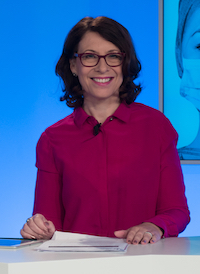
Claire Doole is a former BBC correspondent and international spokeswoman who is passionate about helping people communicate with confidence. Since 2006, she has successfully trained hundreds of professionals in the art of presenting and public speaking, talking to the media, managing communications in a crisis, and writing for the web. In addition, she has coached C-level executives and public figures to give powerful TEDx and TED style talks in Europe and the Middle East. A Swiss and UK national, Claire trains and coaches in French and English.
Claire is also a highly experienced moderator having facilitated panel discussions with government ministers, NGO activists, humanitarians and human rights specialists at major events.

Organising an event should be like cooking a great meal: a careful balance of technical know-how and creative flair. Get the mix right and your guests leave satisfied, inspired, and possibly asking for seconds.
Get it wrong… and you’re serving up something bland, or overcooked
Sadly, many organisers fail to find the right ingredients. They over-season with PowerPoint presentations, dilute the panels with speakers who lack incisive insights, and wonder why the audience sneaks out before dessert.
But last year, the organisers of one of the most enjoyable events I moderated absolutely nailed the recipe. They served up the right blend of policy substance and creative flair.
So, let me share what made this event so deliciously satisfying.
The Dish: The ALMA Journey
The ALMA (Aim, Learn, Master, Achieve) journey celebrated the achievements of young people not in employment, education, or training who had taken part in a transformative European Commission programme, working for a short period in another European country.
In short: a meaningful initiative, a powerful story — and the perfect base ingredient.
Here, in 8 easy steps, is their recipe for success.
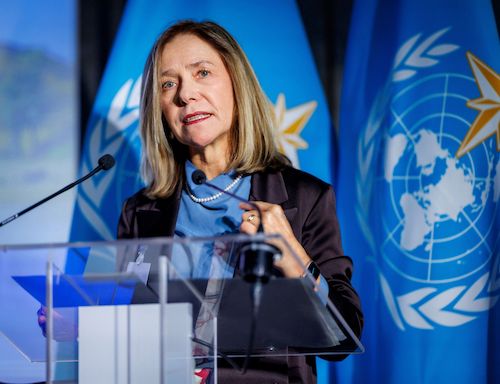
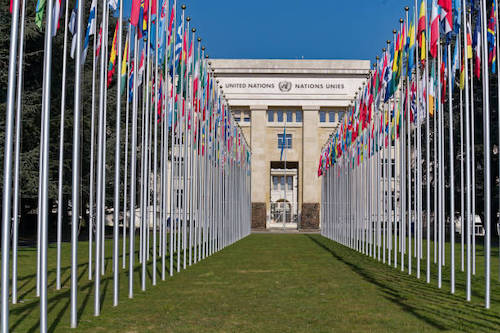
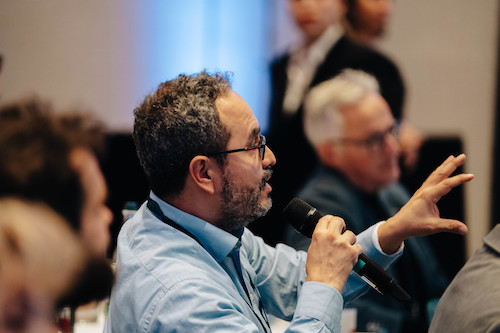
- Reframe convoluted questions: If a question is overly long, vague, or hard to follow, help your audience by tightening it up.
“I am sorry I can’t quite grasp every detail of your question, but I would like to respond to your part about X” - Be clear when you don’t know the answer: You can’t have all the answers. Here are three options on what to say when you don’t have the answer:
i. Say ‘I don’t know’ – you’ll get back to them. Never, ever, guess.
ii. Ask someone in the audience to respond who is an expert on the subject.
iii. ‘I’m not 100% sure’ When you say this you’re not saying ‘I don’t know’, you’re saying ‘I’m not completely sure’, which is a totally different thing. - Answering challenging questions: When faced with a challenging question from that angry staff member, board member or at an official hearing – you need to employ the ABC technique I teach in media training - acknowledge the question, potentially reframing it before you bridge to a broader point you want to make – moving from the specific to the general.
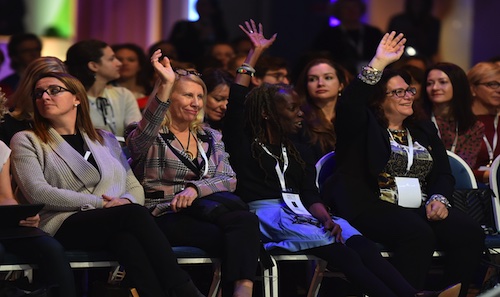
- Online events: Questions pour in via the chat, leaving the presenter frantically scrolling up and down to find the pertinent questions.
- External events or conferences: When audience members seize the opportunity to talk about their organization or experience, rather than ask a question to the presenter. (As a panel moderator, a comment rather than a question from audiences is an occupational hazard!).
- Town halls: When the presenter/speaker is faced with a challenging staff member, keen to ask that killer question.
- Formal meetings or hearings: The presenter is required to answer many questions in a fixed amount of time, often from members who ask multiple questions on a wide variety of subjects.
Latest news
- 1
- 2
- 3
- 4
- 5
- 6
- 7
- 8






